Greener Marketing
£11.20£14.20 (-21%)
***BUSINESS BOOK AWARDS – FINALIST 2021***
This timely book is a sequel to John Grant’s Green Marketing Manifesto (2007) the award-winning and bestselling definitive guide to green marketing (and not greenwashing).
Fast forward to mid-2020. Climate Change is back at the top of the public and political agenda. Even after covid-19, hundreds of big-name CEOs are committing to a #greenrecovery. And surveys show widespread global public support for this and recent shifts in sustainable behaviours and attitudes in markets ranging from organic food to flying. Sustainable brands are significantly outperforming conventional ones. As are sustainability related stock prices. Companies like Unilever continue to set ambitious targets related not just to climate, but biodiversity and deforestation, plastics, social justice, regenerative farming. Sustainability related trends such as plant-based foods and electric vehicles are showing steep growth and creating tomorrow’s superbrands (Impossible, TESLA…).
This book is packed with up to date learnings, case examples and trends, covering everything from eco labelling, transparency and the circular economy; to rebound effects, sustainable finance, blockchain and regenerative farming. A core message being that to drive sustainability, marketers firstly do really need to properly understand sustainability, its many applications and implications. Secondly to be effective, marketers need to understand what it means to their consumers and other significant audiences. Hence the book takes a long hard look at what was driving all the protests, boycotts and petitions in 2019 and what ideas, causes and platforms caught the public imagination.
The ultimate goal is to go beyond marketing that simply looks good, to marketing that does good.
This book helps in achieving that goal by showing the reader how to:
- Uncover strategies for sustainable marketing that actually deliver on green and social objectives, not just greenwashing
- Reconceptualise marketing and business models, and learn to recognise the commercial strategies and approaches that are no longer fit for purpose
- Learn how hot topics like the climate crisis, biodiversity, social justice, single use plastics and supply chain transparency influence green and social marketing
- Read about numerous examples and case studies from both brand leaders and challengers that have developed innovations and fresh creative approaches to green and social marketing
- Get practical tools, models, facts, strategies, workshop and project processes and business case rationales – so that you can build your own plans and proposals
This book is intended to assist marketers, by means of clear and practical guidance, through a complex transition towards meaningful marketing that makes a positive creative impact on the climate crisis and on improving human life in troubled times.
Aimed both at big companies that are trying to be good, and good companies that are trying to be big.
Read more
Additional information
| Publisher | 1st edition (13 Aug. 2020), Wiley |
|---|---|
| Language | English |
| Paperback | 272 pages |
| ISBN-10 | 1119689112 |
| ISBN-13 | 978-1119689119 |
| Dimensions | 14.99 x 1.52 x 22.61 cm |

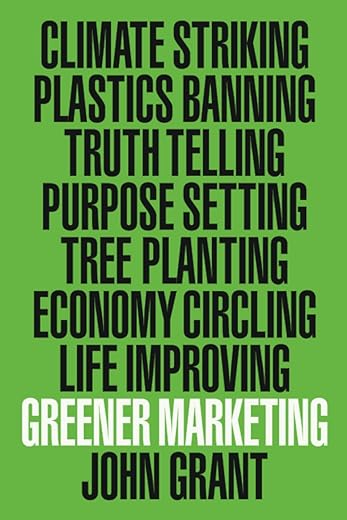
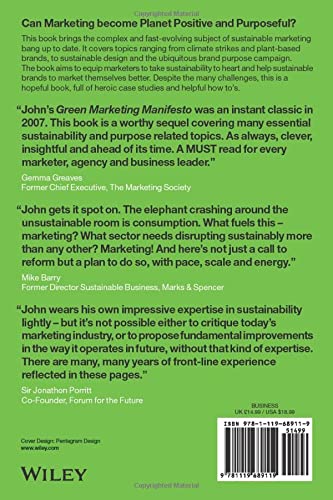

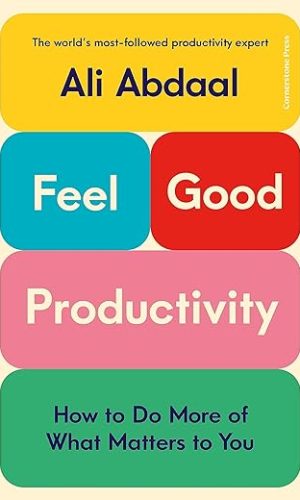
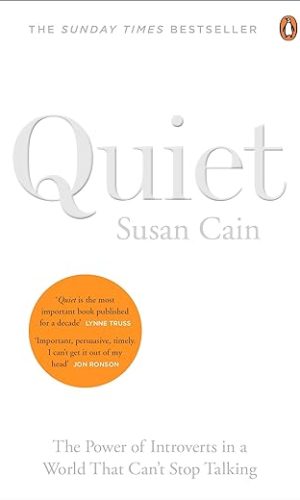
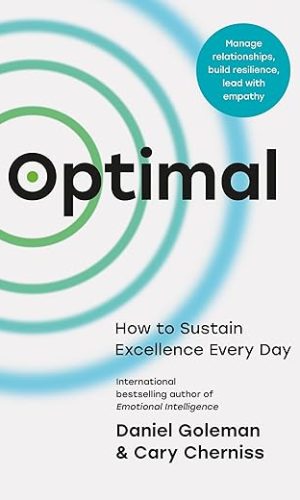


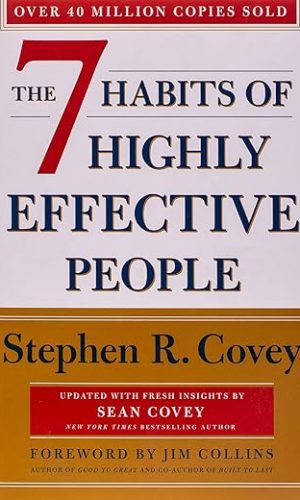

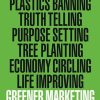
by Matt Bamford
John Grant is a marketing consultant. This is an interesting book about marketing and sustainability that makes clear that marketing people need to understand sustainability including its forms and business implications and also what sustainability means to a business’s customers. Grant makes a sound business case for why sustainability is a benefit to businesses and writes in a clear, easy to follow style. I thought this was a very interesting book and if you work in marketing or have an interest in green business then I think you can take a lot from it.
by Gareth Kay
A necessary and illuminating book, full of insights, written in a calm, constructive voice, recommended for anyone with an interest in business, the economy, and where we go from here.
by Jim MacLachlan
Another gem from John Grant, one of the most original and optimistic marketing thinkers around. Packed full of examples of big and small businesses choosing to make real difference to the planet and society with their marketing and a call to arms for the rest to do something about the climate emergency. And to remove any excuses, the book is full of simple, powerful tools and frames to help any brand make positive change.
by Audiophile
I’ve read several books by John Grant, all of which seem to me to provide their own unique take on how marketing can be a force for good in the world.
Greener Marketing is no exception to that rule. Crammed with an even higher concentration of examples than usual, the book provides a comprehensive range of ways in which marketing can drive system change to create not just a greener economy but one that is fairer and perhaps more fun as well.
John’s style is always engaging – I particularly liked the section ‘Fifty Shades of Greenwash’ which with deliberate irony is itself an exaggeration as technically only 12 ways are introduced. My favourite of these was the ‘stay of execution’, an example of which was a fast food business promising to stop destroying rainforests…..in 13 years! The (non-burger related) ‘Whopper’ was also very funny, though I’ll leave you to find that one for yourself.
But while he is unafraid to call industry out on it’s bull***t, this is primarily a book of positive ideas for a practical as well as an attractive future. Be part of it.
by Johnsy
Paperback book with a good clear typeface. I think I like this book. Suspect to get the most out of it then reading some of the authors other works will help. However there is much here. This appears to be John Grant sequel to ‘Green Marketing’. Which I haven’t read so miss some of the background. The author give insight into why being and how being ethical can help both the business and community. The author then goes on to provide the insight, motivation and guidance society needs to work towards the future we want to see in the world. The basic theme is how green capitalism is changing for the better.
by Newton
Timely. Every time I stop reading I feel rushes of Adrenalin. If you want to figure out how to make, sell and market change read this. My copy is covered with notes and new ideas, which surely is the sign of any good book.
by I Read, Therefore I Blog
I got the chance to read “Greener Marketing” by John Grant and found it to be a very informative and thought-provoking book.
Grant does an excellent job of examining the role of marketing in driving environmental change and provides practical suggestions for how companies can adopt more sustainable practices.
One thing I particularly appreciated about the book is that it doesn’t just focus on the negative impacts of marketing and consumption, but also highlights the potential for marketing to be used as a positive force for change. Grant also does a good job of addressing the challenges and opportunities presented by the rise of digital marketing.
Overall, I would recommend “Greener Marketing” to anyone interested in sustainability and the role of marketing in driving environmental change. It is a well-written and thought-provoking book that provides valuable insights and practical recommendations.
by Audiophile
The book claims to “equip marketers to take sustainability to heart, and help sustainable brands to market themselves better”. I’d argue that it does the former ok, and totally fails on the latter.
Overall, this is an interesting, but rambling exploration of what it means for businesses to have a positive impact on society and the planet.
The book misses probably the important question: how to close the gap between consumer attitudes (very concerned about climate change) and behaviours (frequently not making the choices that would reduce climate change). This is shamefully glossed over early in the book, with Grant comparing data points from two differently worded surveys, and claiming that this is now less of an issue. Marketers are in the business of behaviour change, and this book completely dodges the question about how to help consumers adopt climate positive behaviour, products and services
Worse still, the book includes a lot of ill-defined concepts and quasi-controversial nonsense. E.g. “framing is the new branding” which is dropped without properly defining either term.
A shame, as John Grant is a very high quality thinker.